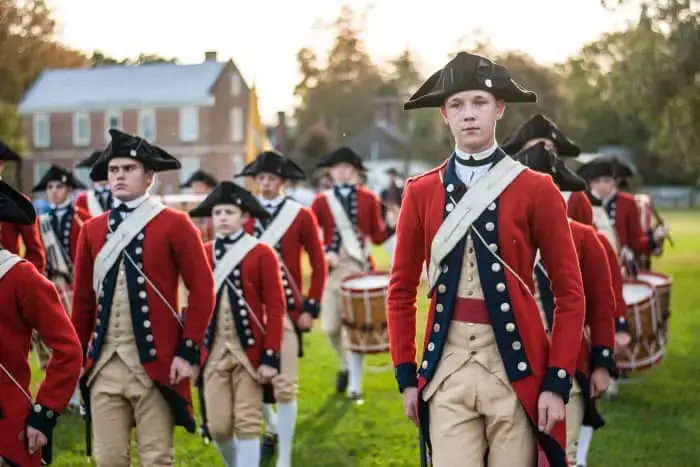
[ Back to Historical Fiction ] -> [ Back to Give Me Liberty ]
Fifers: The Littlest Soldiers
Give Me Liberty
Here’s a thing you need to know: playing a fife is hard! I minored in music in college and am a flutist and piccolo-player. And I find the fife challenging. It’s small, back then crudely carved from wood, and subject to warping and being way off-pitch. Thinking about having to play it in the middle of a battle, musket fire and smoke all around, when it was cold, your lips and fingers perhaps trembling in the frigid air and in terror—knowing men’s lives completely depended on my being able to play, precisely, a memorized tune that would tell them to flank left or right or retreat? Tall orders.
And they counted on boys, 10 to 16-years-old, to do it.
Why? The sound of a fife’s high-pitch could carry a mile, cutting through the din of cannon fire—when commanding officers’ voices would be lost. And so, a fifer and drummer were crucial communication. They traveled as a pair, inseparable, assigned to a company of 75 men and officers. They memorized dozens of short tunes that would tell soldiers what to do, often with split-second urgency. Sixteen was the cut-off age to enlist as a fighting soldier. At that point, the meager, always thinning ranks of Washington’s army needed them to carry a musket. So boys and very old men became the all-important musicians.
Other duty calls were important but in less dire, everyday life as well. Specific cadences and songs told soldiers to wake up, prepare to march, collect firewood, or clean the “necessaries.” A tune titled “The Roast Beef” called men to eat and “Tattoo” (a term coming from taverns’ closing up for the night “turning the taps to” of their barrels of ale) told soldiers to go to their tents to sleep.
To really learn about life as a fifer, I read a gritty and gossipy first-person account, “A History of the Life and Services of Captain Samuel Dewees." It is full of the hardships and hopes -- the duties both inspiring and heartbreaking -- that he experienced as a fifer. As a mother, his vivid descriptions of some of the more harrowing aspects brought tears to my eyes, thinking of that young boy in such harsh situations. But mostly, I marveled at the obvious tenacity and courage those young musician-soldiers possessed.
I was struck by that again when working on Peggy Schuyler’s bio-novel, Hamilton and Peggy!, and read about the youngest of them all: a 10-year-old fifer with the Third Connecticut Regiment. Little Richard Lord Jones met George Washington and sang for Martha in June 1777— “God Save America,” a defiant patriot twist of the British anthem, “God Save the King.” For more on fifer Jones, who stoutly stood his ground against a British drummer in a separate incident, see this blog post.
For more about the fife and drums in general:

https://www.mountvernon.org/george-washington/the-revolutionary-war/music
https://youtu.be/MvTpZO5I_vY?si=D26XKqF9MkEjIVn6
https://www.youtube.com/watch?v=p0eN_XIFVJk
https://www.youtube.com/watch?v=44dosGh-bUE
